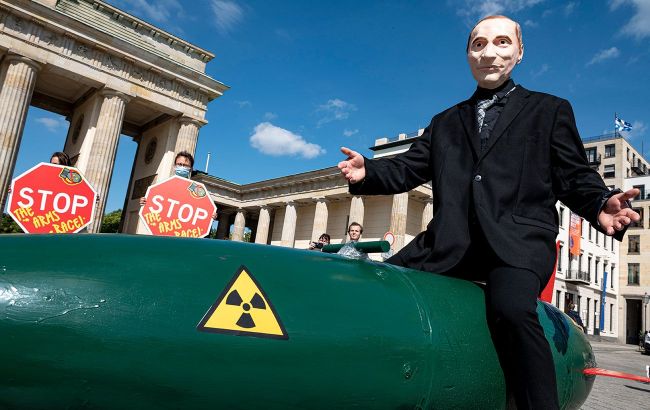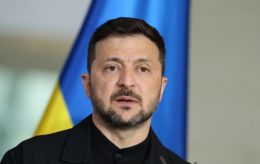EU condemns Russia's exit from Comprehensive Nuclear-Test-Ban Treaty
 The EU has reacted to Russia's withdrawal from the treaty on nuclear tests ban (Photo: Getty Images)
The EU has reacted to Russia's withdrawal from the treaty on nuclear tests ban (Photo: Getty Images)
Russian dictator Vladimir Putin on Thursday, November 2, signed a law that revokes Russia's ratification of the Comprehensive Nuclear-Test-Ban Treaty (CTBT). The European Union has condemned Russia's withdrawal from the treaty, according to the official portal of legal information and a statement by the EU's top diplomat, Josep Borrell.
The bill to withdraw Russia's ratification of the Comprehensive Nuclear-Test-Ban Treaty (CTBT) was passed by the State Duma of the Russian Federation in mid-October. On October 25, the Federation Council approved it.
On the same day, Russia claimed to have conducted a nuclear strike in response to a potential enemy strike.
Reaction from the European Union
According to the EU's High Representative, Josep Borrell, the decision by Russia to withdraw its ratification of the CTBT today endangers the entire international architecture of nuclear non-proliferation and disarmament control and poses threats to global stability.
"The European Union deeply deplores this decision by Russia. All EU Member States have ratified the CTBT and have been working towards its strengthening and entry into force for many years," the statement reads.
Borrell notes that for international peace and security, it is critically important that all states fully abide by the moratorium on nuclear weapon test explosions or any other nuclear explosions and refrain from any action contrary to the object and purpose of the treaty.
The EU has called on Russia to respect the objectives and goals of the treaty.
According to the head of EU diplomacy, withdrawing from this international agreement is the worst move for Russia as a permanent member of the United Nations Security Council.
Comprehensive Nuclear-Test-Ban Treaty
The Comprehensive Nuclear-Test-Ban Treaty (CTBT) was adopted in 1996. It was signed by 185 countries and ratified by 170, including three nuclear-armed states: France, Russia, and the United Kingdom.
However, for the treaty to enter into force, it must be signed and ratified by 44 specific states with nuclear technology, eight of which have not yet ratified it: China, Egypt, India, Iran, Israel, North Korea, Pakistan, and the United States.
Nuclear threat from the Kremlin
According to a survey by the Levada-Center, around 30% of Russia's population expects a nuclear strike by Putin on Ukraine.
In this context, U.S. President Joe Biden has stated that the threat of using tactical nuclear weapons by Russian President Vladimir Putin is real.

